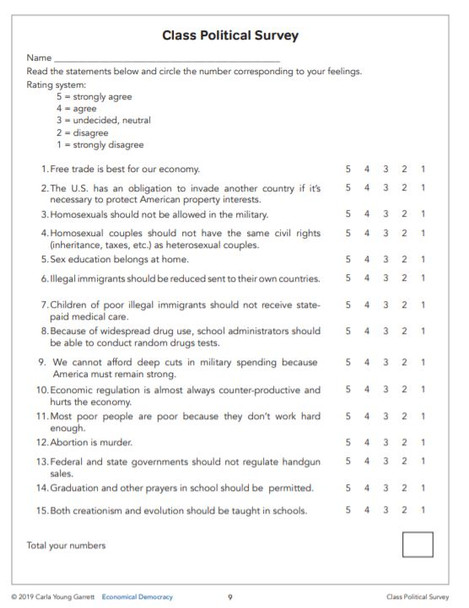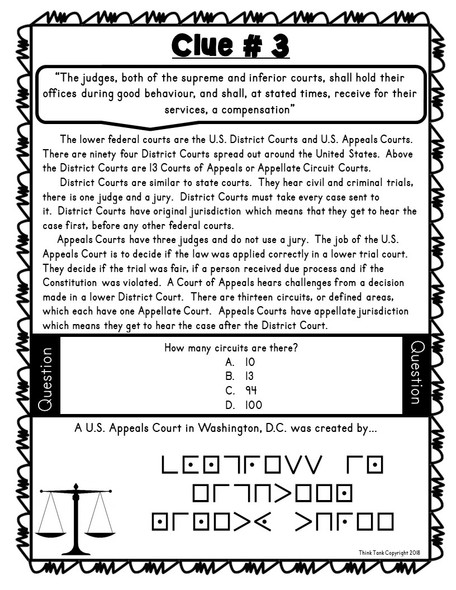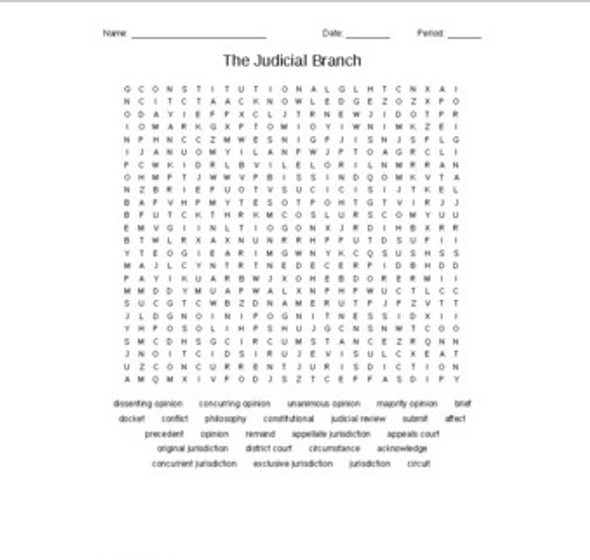Is Justice Blind or Political? – The Judicial Nomination Process
- Bulk Pricing:
- Buy in bulk and save
- Contributor:
- Carla Garrett – Economical Democracy
- Number of Pages:
- 6
- Subject Areas:
- Law, Congress
- Type of Activity:
- Simulation of Congressional Hearing, Research on US Supreme Court
- Resource Type:
Description
"I won the election, so I get to appoint the judges."
The Constitution gives the president the power to appoint U.S. Supreme Court justices with “the advise and consent of the Senate.”
This power has become increasing political with successive presidents appointing justices to their political liking: liberal or conservative. And the court nomination hearing have become exercises in political posturing by the senators.
Is this the way it was supposed to be?
Your students will become the Senate and hold a confirmation hearing on either an actual nominee or a fictitious one. Students will research the topics that the Court is working on and then ask the nominee questions as follows: hard ball ones (for those who don’t like the nominee) and softball ones (for those that do).
For example, can you find a nominee whose decisions on cases will show that they are:
a) Willing to overturn Roe v Wade
b) Friendly to presidential power.
c) Pro-business,
d) Pro- or anti-environmental regulation
e) In favor of closing the pay gap,
f) In favor of getting rid of gerrymandering
g) In favor of raise the minimum wage.
Visit Economical Democracy for more great activities.
























